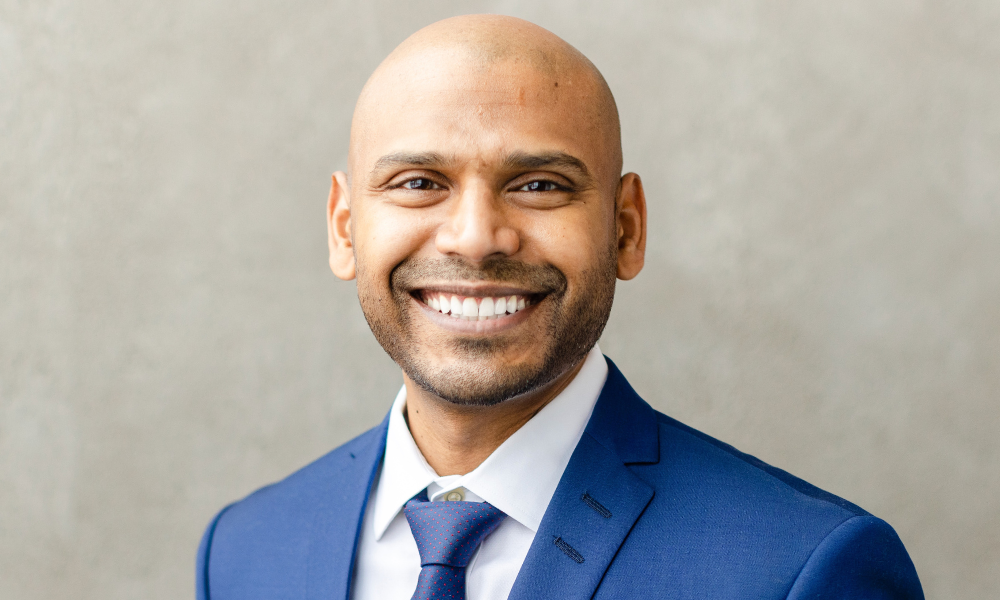Dinesh Ramanathan’s career trajectory speaks to a clear vision: crafting legal frameworks that not only safeguard but actively propel businesses forward. As senior vice president of legal at Fengate Asset Management, Ramanathan has been instrumental in shaping the legal strategies underpinning the company’s real estate and venture capital divisions. His approach isn’t just about keeping pace with growth – it’s about enabling it.
Ramanathan began his legal career in litigation, quickly recognizing it wasn’t the right fit. “I wanted to build something... Litigation deals with a situation that has gotten to the point where parties can’t resolve it,” he says. This drive for constructive legal work saw him transition to a smaller firm focused on corporate and commercial work, where he developed his skills in deal-making. “One of the biggest pros [of smaller firms] is that you need to be self-sufficient and understand how to be resourceful.”
His leap to Ivanhoe Cambridge, now part of CDPQ, marked a pivotal shift. There, he honed his expertise in high-level retail real estate, working within the constraints and opportunities of managing pension funds. “Even though we’re dealing with vast sums of money, fundamentally, what we are doing is ensuring that pensioners have security,” he says. His experience at CDPQ, where he managed large-scale contracts and co-sponsorship deals, solidified his reputation as a pragmatic legal strategist.
At Fengate, Ramanathan faced an entirely new challenge: building an internal legal department for the real estate division from scratch. His goal was clear: to design a legal infrastructure that could scale with the company’s rapid growth. The result? A team supporting transactions exceeding $1 billion annually and a portfolio valued at over $15 billion.
Central to this success was a strategy anchored on four pillars: integration into the business, establishing precedents, good governance, and compliance. “Traditionally, legal has come in at later stages in the process,” he says. His philosophy flips the script, embedding legal early in deal structuring to identify risks and opportunities upfront. “I am actively involved with structuring deals to mitigate for risk and maximize the upside.”
Ramanathan’s incremental approach to building templates and precedents was another transformative step. “Every opportunity where there was a new contract, I used that opportunity to question whether the precedent was the best form Fengate should use going forward,” he says. The process was painstaking but yielded significant efficiencies over time.
Governance, too, took centre stage as Fengate’s scale demanded clear approval processes and delegation of authority. “You don’t want your president signing off on a small IT contract,” he says.
Compliance, in its dual forms of statutory and contractual, presented unique challenges in the high-speed, high-growth environment. Ramanathan implemented systems to track obligations, ensuring no key terms or deadlines were overlooked. “One of the challenges with having a high-speed, high-growth department is that not everyone is aware of the intricacies of the obligations under our legacy contracts,” he says. His solution: comprehensive summaries that clarified rights and obligations for all stakeholders.
The legal world is evolving, and Ramanathan is keeping pace by leveraging technology. He highlighted the potential of AI in tasks like document review but was candid about current limitations. “One of the challenges with AI is hallucinations... generative AI specifically is based on a predictive algorithm,” he cautions. Yet, he remains optimistic about its future, particularly as tools improve through machine learning.
As for working with external counsel, Ramanathan’s approach is methodical. Instead of relying on one-size-fits-all solutions, he tailors external support to specific needs, balancing large firm expertise with mid-size firm efficiency and niche specialist knowledge. “We’ve been able to achieve that success in a fairly efficient manner,” he notes.
In a legal landscape marked by uncertainty and innovation, Ramanathan thrives on navigating complexities. Whether it’s compliance challenges, bespoke fund structures, or emerging technologies, his adaptability and focus ensure that Fengate’s legal foundations remain robust and forward-looking.
“It’s not just about avoiding risk,” he says. “It’s about building something that lasts.”
Dinesh Ramanathan is a judge for the 2025 Canadian Law Awards. Nominations close on January 31, 2025.





